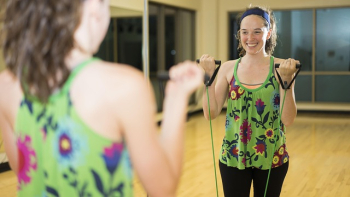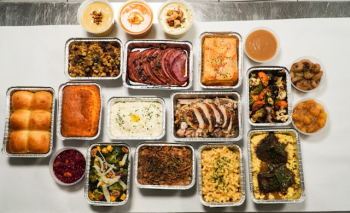
Walking
Walking
Walking
Exercise and longevity go hand in hand. Many of us are aware of the benefits of exercise, but also have a challenging time fitting it into our busy lives. Exercise can be daunting - thoughts of huffing and puffing, suffering through challenging ups & downs, sideways and unders - it can make it difficult to feel motivated to get started.
But I’m here to share with you a very valuable insight. Achieving a health span enhancing level fitness can be astonishingly simple if you take the right approach. While weight training, cardio DVDs and sport all have their place - none of these need be a part of a life-changing exercise habit.
What’s the secret?
Walking. Plain and simple.
Before I add in the details, let’s start out with an image of you - much later in life than you are now. Perhaps you envision yourself, as many do, as weak, stooped, tired. Worn down by the years, and unable to do many of the things you love. For some, this vision may be more a present-day reality than some distant future. That can be a hard pill to swallow, and leave you feeling a bit down on yourself. And to be certain, many of us have been through a trying period of lockdowns and time away from family and friends, which can feel quite depleting.
But in that future vision of ‘being old’, what we’ve really just described is “Frailty”.
Frailty is actually a medical term, which surrounds the notion of becoming ‘dependent’, rather than independent. It is where the day-to-day tasks become too much for oneself to manage without help - and often marks the point where it’s necessary to transition to some level of managed care. It’s not a future any of us want, but it’s a fact of life that frailty becomes much more common with age. It’s prevalence is around 6% in the 7th decade of life (age 60-69), but climbs very quickly to 65% by age 90. Being frail is a dangerous state, as it marks a decline in ‘resilience’, which is the ability of the body to adapt to stressors (e.g. illness). When you become frail, your risk of disease (morbidity) and death (mortality) rise very quickly. Envisioning this can feel quite daunting, perhaps even inevitable. And while to some degree, we’ll all become old and eventually pass away, frailty doesn’t have to be the way we go out.
And that’s where walking comes in.
One of the key metrics of becoming ‘frail’ is a test of an individual’s walking speed. In science this is called “Gait Speed”, and once yours falls below a given threshold - you’ve become frail. That vision of being stooped, old, weak - and perhaps most importantly ‘dependent’ - becomes a reality.
But you can do something about it.
You can walk.
And amazingly, that alone can be enough to stave off the worst aspects of growing weak, and frail as you age. You see, our bodies are designed to walk. Whether you believe our bodies to have evolved on our own, or intelligently designed, our bi-pedal nature of locomotion is impeccable and readily apparent. As you walk, one foot in front of the other, your arms swing in a ‘contralateral’ motion. The right arm forward as the left foot advances, followed by the step of the right foot and swing of the left arm. It is a practice in balance, enhancing neuromuscular control and bodily coordination.
As you swing your arms and legs, blood is pumping through your body, flushing clean your capillaries and energising your mitochondria. Your lungs fill with rejuvenating oxygen, and fresh nutrients arrive through the body while old metabolites and wastes are washed away. If you can walk outside, the sun falls upon you skin, producing Vitamin D, and the fresh air nature gives your body a boost of feel-good hormones. And if you’re so blessed as to share it with a friend, a healthy dose of oxytocin (a feel-good hormone) will likely follow.
Best of all, you’ll be training that Gait Speed. And your body, as it completes a task is designed to complete, becomes stronger and rejuvenated.
By building a health walking habit, you are fighting off the future of frailty, with a simple, free and easy to complete activity. Each day that you walk, you’ll get stronger, be able to go further, and with time, will be able to walk faster, and achieve aerobic level heart-rate training, known to have a whole host of additional benefits which will improve your health.
So, if like many people, visiting DoNotAge looking to improve their health span with the support of a wide range of supplements to support their health journey, you should come away from this post with a new appreciation for the simple act of taking a step - one after another.
Walking. It’s where you should start your exercise journey. Don’t make it hard, keep it simple, keep it free. Get outside, hopefully with a mate, and get those legs pumping.
Your future self will thank you!
If you have any questions, please contact [email protected]
Contributed by Dr Nick Engerer




